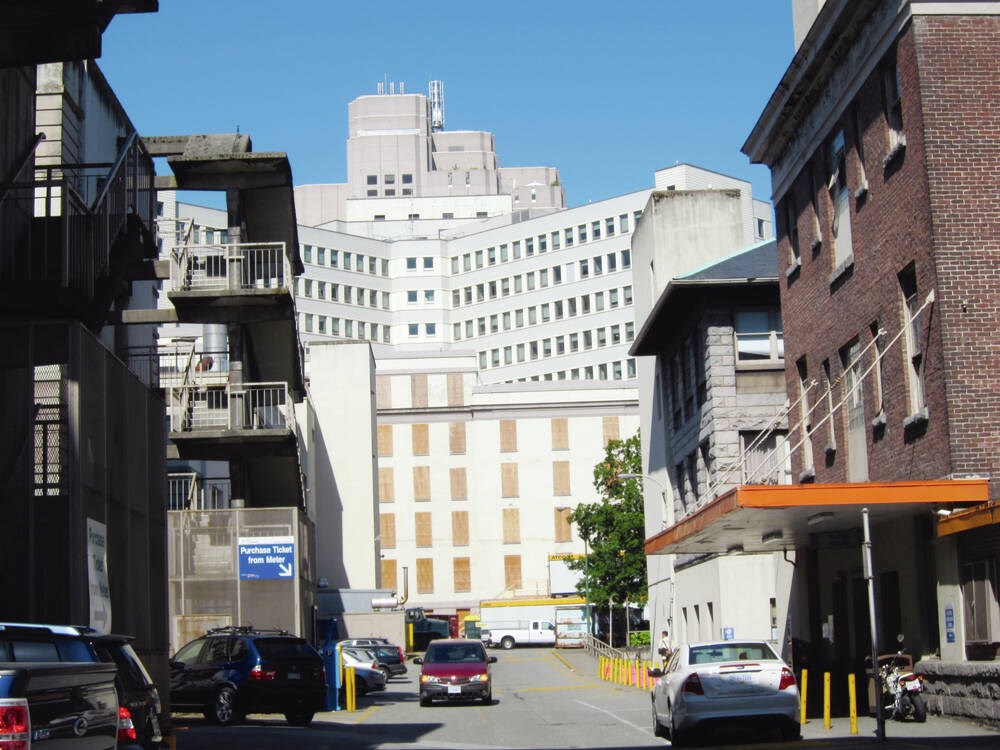It comes as a surprise to many people, including health-care professionals, that the health-care system has a large ecological footprint. But as I noted last week, if the global health-care system were a country, its carbon emissions would have made it the fifth-largest emitter on the planet, according to a 2019 report from Health Care Without Harm.
But climate change caused by the health sector’s emissions results not only in environmental harm, but harm to human health. And that is a direct contravention of one of the fundamental principles of medicine, enshrined in the Hippocratic Oath, to do no harm; hence the need for health care without harm.
Of course, climate change is not the only environmental and health harm that the health-care system creates. For example, the Green Hospital Scorecard, a program of the Canadian Coalition for Green Health Care (founded 20 years ago), is used by hospitals to assess their policies and actions on energy and water use, pollution prevention and waste management, transportation, healthy food systems and climate change, as well as corporate leadership.
So now that Canada has signed on at COP26 to the global commitment to create sustainable low-carbon health-care systems, we have to look to the provinces, who actually run the health-care system, to step up and take action across this wide range of issues.
Here in B.C., some steps are already underway. The province’s July 2021 mandate letters to the health authorities make fighting climate change one of five foundational principles that will inform their policies and programs.
In particular, they are expected to reduce their building emissions by 50 per cent and their fleet emissions by 40 per cent by 2030, as part of the CleanBC Plan. But B.C. will need to go much further to identify and tackle the full range of environmentally responsible health-care practices that are needed.
So I was delighted to learn recently that UBC has established a Planetary Healthcare Lab led by Dr. Andrea MacNeill, a cancer surgeon at Vancouver General Hospital who is passionately committed to reducing health care’s environmental and health impacts. She also holds the newly established position of Medical Director of Planetary Health for Vancouver Coastal Health. The lab is an interdisciplinary research collaborative dedicated to creating health systems that promote both human and planetary health.
In an April statement, UBC noted the lab “will tackle everything from hospital food-related pollution and unnecessary patient testing and treatment through to emissions stemming from the medical supply chain.”
Over time, the lab says, this will involve “embedding planetary healthcare in health system structures (e.g. hospital accreditation, quality reporting, supply chain)” so it becomes just part of everyday practice.
One key area the lab will be looking at is the health system’s food services, which account for a large part of the sector’s footprint and generate a lot of food waste, as is the case at the household level. A more ecologically sustainable diet will also have significant direct health benefits for patients and staff.
Another area is the supply chain, which accounts for about 80 per cent of health care’s carbon emissions. Requiring a “circular economy” approach be adopted throughout the supply chain could thus substantially reduce the consumption and depletion of natural resources, as well as reducing emissions, waste and pollution.
The lab will also examine the environmental and health benefits of “virtual care,” which already saves millions of kilometres of patient travel each year.
The new Planetary Health initiative at Vancouver Coastal Health is complemented by the work of its Energy and Environmental Sustainability team, which among other things works on active and clean transportation and minimizing energy and water consumption, carbon emissions, waste generation and toxic-chemical use.
Then there is GreenCare, which unites efforts across the four Lower Mainland health organizations (Vancouver Coastal Health, Fraser Health, Providence Health and the Provincial Health Services Authority). Their 2020 Environmental Performance Dashboard highlights significant reductions in the intensity of greenhouse-gas emissions, water use and waste generation across the four health authorities.
It’s a good start. Now we need this to become provincial in scope, with planetary health offices at the provincial level as well as in all the health authorities.
Dr. Trevor Hancock is a retired professor and senior scholar at the University of Victoria’s School of Public Health and Social Policy.






More Stories
Why Bamboo Cutting Boards Are More Eco-Friendly Than Other Materials
Nutritionist Reveals 10 Easy Ways To Curb Sugar Cravings – Find Out What They Are
How can we make our brains prefer healthy food? – study